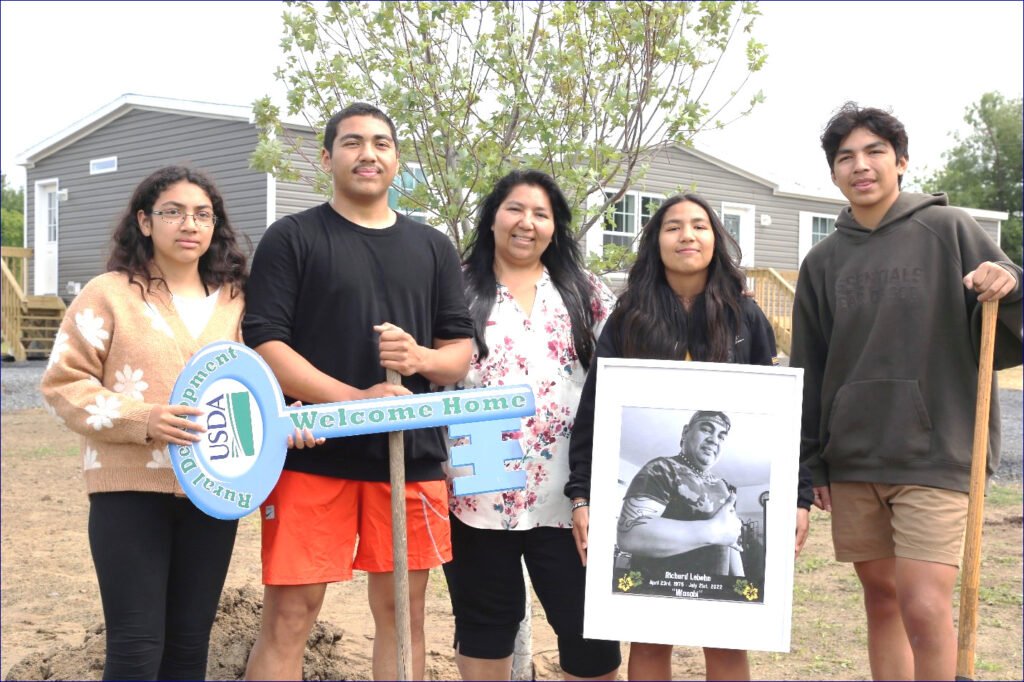In an era marked by soaring costs, elevated interest rates, and an acute shortage of homes, a mounting crisis looms over the American landscape, pushing more individuals into homelessness. The strategies proposed to tackle these multifaceted issues vary dramatically, often hinging on political divides. Yet, amidst the tumultuous aftermath of a contentious election and a significant power shift in Washington, finding common ground in policy appears increasingly elusive.
Nevertheless, an unexpected beacon of hope has emerged over the past year and a half: there is a burgeoning bipartisan coalition rallying around a critical yet often overlooked issue—rural housing reform, set to take center stage in 2025.
The USDA’s Rural Housing Service (RHS) stands as a solitary outpost in the federal bureaucracy, with a singular mandate: to enhance affordable housing options in rural America. This agency acts not only as a lender but also as a guarantor for mortgages and a purveyor of rental assistance, profoundly impacting millions of American families and housing developers, particularly those within low- to moderate-income brackets.
As housing affordability teeters on the brink, it is imperative for incoming political leadership to recognize the vital role RHS plays. The pathway to bolstering homeownership, revitalizing the housing construction market, and ensuring accessible rental housing in America’s heartlands is clear and compelling. The stakes are high, and the benefits to rural communities are undeniable.
The newly appointed heads of the Senate Banking Committee and the House Financial Services Committee find themselves at a pivotal juncture, with the opportunity to exemplify true bipartisanship. They can act swiftly to resurrect the Rural Housing Service Reform Act, a bipartisan initiative that saw daylight during the 118th Congress through the efforts of Senators Tina Smith (D-MN) and Mike Rounds (R-SD), alongside Representatives Blaine Luetkemeyer (R-MO-03) and Emanuel Cleaver (D-MO-05). This legislation is designed to confront a critical issue: the impending crisis surrounding maturing USDA Section 515 mortgages.
Should Congress remain stagnant, every unit of USDA-funded rental housing could lose its rental assistance upon the expiration of its mortgage—a calamity for property owners and residents alike, particularly since these units often represent the lone affordable housing option within rural enclaves. The proposed reforms would allow continued rental assistance for properties opting into long-term contracts with RHS after their mortgages have been settled.
Moreover, the incoming leadership of the Appropriations Committees must champion sustained funding for RHS programs throughout the 119th Congress. Ensuring that access to RHS programs remains intact is critical for those seeking to construct homes, secure mortgages, or afford rent in rural areas. Such support is vital for stabilizing the very communities that rely heavily on these essential services.
Continuing the funding for RHS rental assistance safeguards the well-being of residents in USDA’s multifamily housing—predominantly seniors and individuals with disabilities living on meager average incomes of less than $15,000 annually. Furthermore, extending lending authority for multifamily loans would empower a diverse array of developers—private, nonprofit, and governmental—to construct and preserve the desperately needed housing stock across rural America.
RHS’s significant influence within the rural mortgage market cannot be understated; it has facilitated over two million single-family mortgages for low- and moderate-income households while issuing direct loans for thousands of subsidized mortgages catering to very low- and low-income rural families, including Native American communities.
It is abundantly clear: the necessity, political advantages, and urgency for comprehensive rural housing reform resonate strongly. The 119th Congress, alongside the new administration, must not turn a blind eye to the pressing housing needs of rural Americans and the invaluable work undertaken by the USDA Rural Housing Service.
Emily Nosse-Leirer serves as the policy director for Enterprise Community Partners, focusing on rural and Native American initiatives, where she spearheads policy development and advocacy efforts addressing housing challenges faced by rural areas, Tribal nations, and Native American communities.

